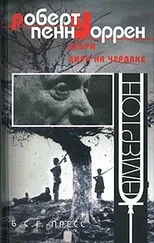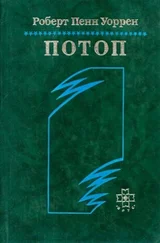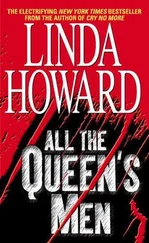Роберт Уоррен - All the king's men
Здесь есть возможность читать онлайн «Роберт Уоррен - All the king's men» весь текст электронной книги совершенно бесплатно (целиком полную версию без сокращений). В некоторых случаях можно слушать аудио, скачать через торрент в формате fb2 и присутствует краткое содержание. Жанр: Современная проза, на английском языке. Описание произведения, (предисловие) а так же отзывы посетителей доступны на портале библиотеки ЛибКат.
- Название:All the king's men
- Автор:
- Жанр:
- Год:неизвестен
- ISBN:нет данных
- Рейтинг книги:4 / 5. Голосов: 1
-
Избранное:Добавить в избранное
- Отзывы:
-
Ваша оценка:
- 80
- 1
- 2
- 3
- 4
- 5
All the king's men: краткое содержание, описание и аннотация
Предлагаем к чтению аннотацию, описание, краткое содержание или предисловие (зависит от того, что написал сам автор книги «All the king's men»). Если вы не нашли необходимую информацию о книге — напишите в комментариях, мы постараемся отыскать её.
All the king's men — читать онлайн бесплатно полную книгу (весь текст) целиком
Ниже представлен текст книги, разбитый по страницам. Система сохранения места последней прочитанной страницы, позволяет с удобством читать онлайн бесплатно книгу «All the king's men», без необходимости каждый раз заново искать на чём Вы остановились. Поставьте закладку, и сможете в любой момент перейти на страницу, на которой закончили чтение.
Интервал:
Закладка:
So I lay back and thought of Adam and the truth. And of the Boss and what he had said the truth was. The good was. The right was. And lying there, lulled in the Cadillac, I wondered if he believed what he had said. He had said that you have to make the good out of the bad because that is all you have got to make it out of. Well, we had made some good out of some bad. The hospital, The Willie Stark Hospital, which was going to be there when Willie Stark was dead and gone. As Willie Stark had said. Now if Willie Stark believed that you always had to make the good out of the bad, why did he get so excited when Tiny just wanted to make a logical little deal with the hospital contract? Why did he get so heated up just because Tiny's brand of Bad might get mixed in the raw materials from which he was going to make some Good? "Can't you understand?" the Boss demanded of me, grabbing my lapel. "Can't you understand, either? I'm building that place, the best in the country, the best in the world, and a bugger like Tiny is not going to mess with it, and I'm going to call it the Willie Stark Hospital and it will be there a long time after I'm dead and gone and you are dead and gone and all those sons-of-bitches are dead and gone–" That was scarcely consistent. It was not at all consistent. I would have to ask the Boss about it sometime.
I had asked the Boss about something else once. The night after the impeachment blew up. The night when the great crowd that poured into the town stood on the lawn of the Capitol, trampling the flower beds beneath the great frock-coated and buckskin-clad and sword-bearing bronze statues which were History. When out of the tall dark doorway of the Capitol, under the blue glares of the spotlights Willie Stark walked out to stand at the top of the high steps, heavy and slow-looking, blinking in the light. He stood there, the only person up there on the wide expanse of stone, seeming to be lonely and lost against the mass of stone which reared behind him, standing there blinking. The long chant of "Willie–Willie–we want Willie," which had swelled up from the crowd, stopped as he came out. For an instant as he waited, there wasn't a sound. Then suddenly there was the great roar from the crowd, without any words. It was a long time before he lifted his hand to stop it. Then the roar died away as though under the pressure of his slowly descending hand.
Then he said, "They tried to ruin me, but they are ruined."
And the roar came again, and died away, under the hand.
He said, "They tried to ruin me because they did not like what I have done. Do you like what I have done?"
The roar came, and died.
He said, "I tell you what I am going to do. I am going to build a hospital. The biggest and the finest money can buy. It will belong to you. Any man or woman or child who is sick or in pain can go in those doors and know that all will be done that man can do. To heal sickness. To ease pain. Not as charity. But as a right. It is your right. Do you hear? It is your right!"
The roar came.
He said, "And it is your right that every child shall have a complete education. That no person aged and infirm shall want or beg for bread. That the man who produces something shall be able to carry it to market without miring to the hub, without toll. That no poor man's house or land shall be taxed. That the rich men and the great companies that draw wealth from this state shall pay this state a fair share. That you shall not be deprive of hope!"
The roar came. As it died away, Anne Stanton, who had her arm through mine and was pressed close by the weight of the crowd, asked, "Does he mean that, Jack? Really?"
"He's done a good deal of it already," I said.
"Yes," Adam Stanton said, and his lips curled back with the words, "yes–that's his bribe."
I didn't answer–and I didn't know what my answer would have been–for Willie Stark, up there on the high steps, was saying, "I will do this things. So help me God. I shall live in your will and your right. And if any man ties to stop me in the fulfilling of that right and that will I'll break him. I'll break him like that!" He spread his arms far apart, shoulder-high, and crashed the right fist into the left palm. "Like that! I'll smite him. Hip and thigh, shinbone and neckbone, kidney punch, rabbit punch, uppercut, and solar plexus. And I don't care what I hit him with. Or how!"
Then, in the midst of the roar, I leaned toward Anne's ear and yelled, "He damned well means that."
I didn't know whether or not Anne heard me. She was watching the man up there on the steps, who was leaning forward toward the crowd, with bulging eyes, saying, "I'll hit him. I'll hit him with that meat ax!"
The he suddenly stretched his arms above his head, the coat sleeves drawn tight to expose the shirt sleeves, the hands spread and clutching. He screamed, "Gimme that meat ax!"
And the crowd roared.
He brought both hand slowly down, for silence.
Then said, "Your will is my strength."
And after a moment of silence said, "Your need is my justice."
Then, "That is all."
He turned and walked slowly back into the tall doorway of the Capitol, into the darkness there, and disappeared. The roar was swelling and heaving in the air now, louder than ever, and I felt it inside of me, too, swelling like blood and victory. I stared into the darkness of the great doorway of the Capitol, where he had gone, while the roar kept on.
Anne Stanton was tugging at my arm. She asked me, "Does he mean that, Jack?"
"Hell," I said, and heard the savage tone in my own voice, "hell, how the hell do I know?"
Adam Stanton's lips curled and he said, "Justice! He used that word."
And suddenly, for the flicker of an instant, I hated Adam Stanton.
I told them I had to go, which was true, and worked my way around through the edge of the crowd, to the police cordon. Then I went around to the back of the Capitol, where I joined the Boss.
Late that night, back at the Mansion, after he had thrown Tiny and his rabble out of the study, I asked him the question. I asked, "Did you mean what you said?"
Propped back on the big leather couch, he stared at me, and demanded, "What?"
"What you said," I replied, "tonight. You said your strength was their will. You said your justice was their need. All of that."
He kept on staring ay me, his eyes bulging, his stare grappling and probing into me.
"You said that," I said.
"God damn it," he exclaimed, violently, still staring at me, "God damn it–" he clenched his right fist and struck himself twice on the chest–"God damn it, there's something inside you–there's something inside–"
He left the words hanging there. He turned his eyes from me and stared moodily into the fire. I didn't press my question Well, that was how it had been when I asked him a question, a long time back. Now I had a new question to ask him: If he believed that you had to make the good out of the bad because there wasn't anything else to make it out of, why did he stir up such a fuss about keeping Tiny's hands off the Willie Stark Hospital?
There was another little question. One I would have to ask Anne Stanton. It had come to me that night down on the pier at the mist-streaked river when Anne said that she had gone up to Adam Stanton's apartment "to talk to him about it"–about the offer of the directorship of the Willie Stark Hospital. She had said that to me, and at the moment, it had disturbed like an itch that comes when your hands are full and you can't scratch. I hadn't, in the press of the moment, defined what was disturbing, what was the question. I had simply pushed the whole pot to the back of the stove and left it to simmer. And there it simmered for weeks. But one day, all at once, it boiled over and I knew what the question was: How had Anne Stanton Known about the hospital offer?
Читать дальшеИнтервал:
Закладка:
Похожие книги на «All the king's men»
Представляем Вашему вниманию похожие книги на «All the king's men» списком для выбора. Мы отобрали схожую по названию и смыслу литературу в надежде предоставить читателям больше вариантов отыскать новые, интересные, ещё непрочитанные произведения.
Обсуждение, отзывы о книге «All the king's men» и просто собственные мнения читателей. Оставьте ваши комментарии, напишите, что Вы думаете о произведении, его смысле или главных героях. Укажите что конкретно понравилось, а что нет, и почему Вы так считаете.





![Роберт Уоррен - Рассказы [Компиляция]](/books/419993/robert-uorren-rasskazy-kompilyaciya-thumb.webp)


